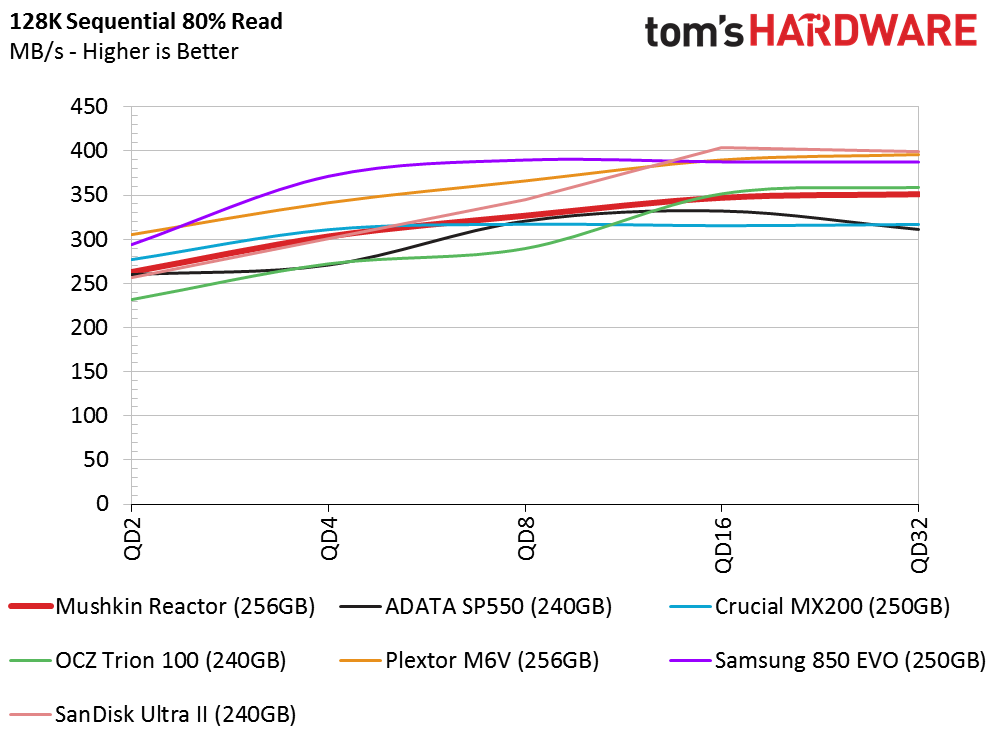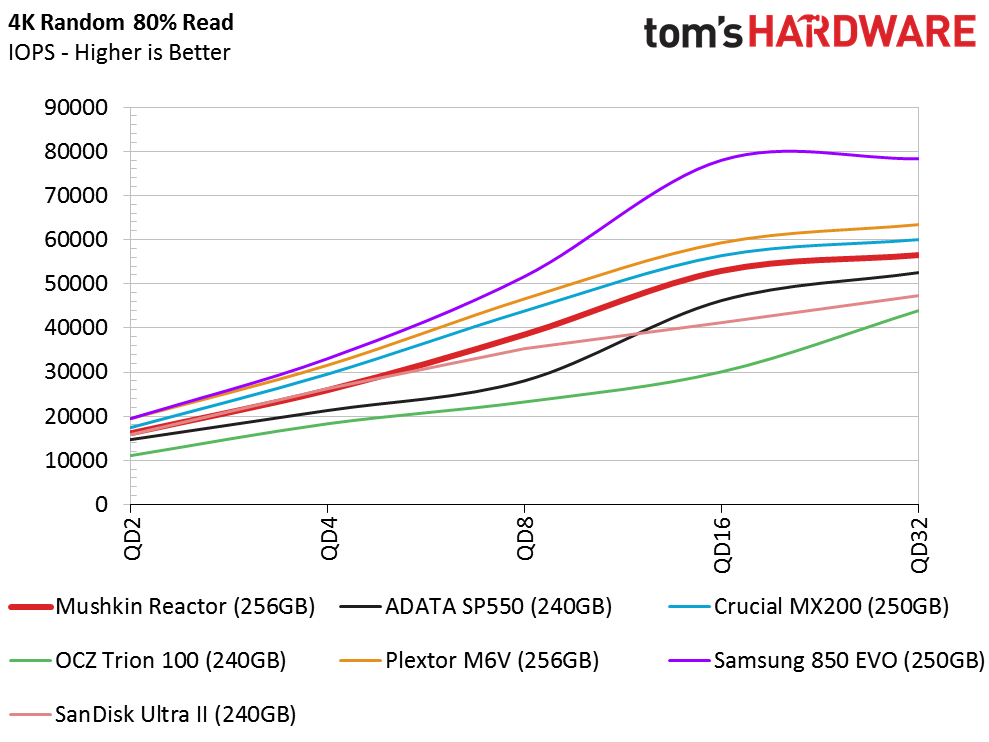Mushkin Reactor 256GB SSD Review
Mushkin's Reactor SSDs sell for very low prices online, and the 1TB model is one of our top value picks. Is the 256GB model as good of a value? We answer that today.
Why you can trust Tom's Hardware
Mixed Workload And Steady State
80 Percent Sequential Mixed Workload
Our mixed workload testing is described in detail here, and our steady state tests are described here.
Mixed-workload tests give us a clearer picture of how a drive will perform in your computer. A computer system rarely just reads or just writes data, unless used as a secondary volume to store mass data. Under this view, the Reactor shows fare performance, but it still falls well short of the Samsung 850 EVO 250GB.
80 Percent Random Mixed Workload
The same 80 percent mix of read-to-data writes with random 4KB data shows the same picture. The Reactor 256GB performance is right in the middle, where we expect to find it based on price data.
Sequential Steady State
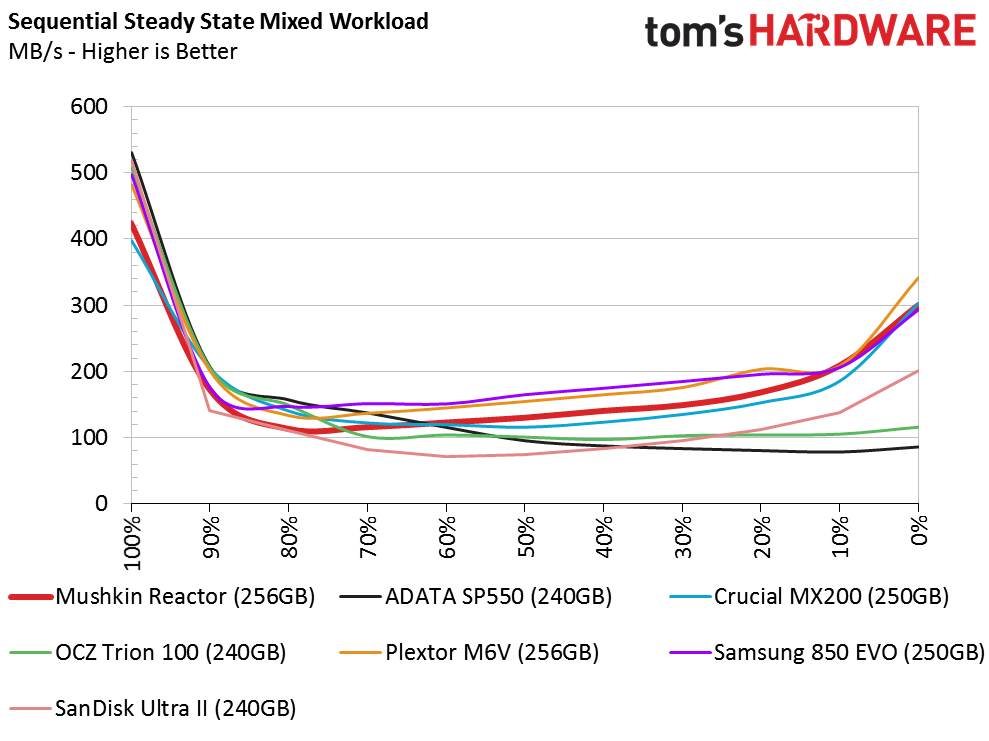
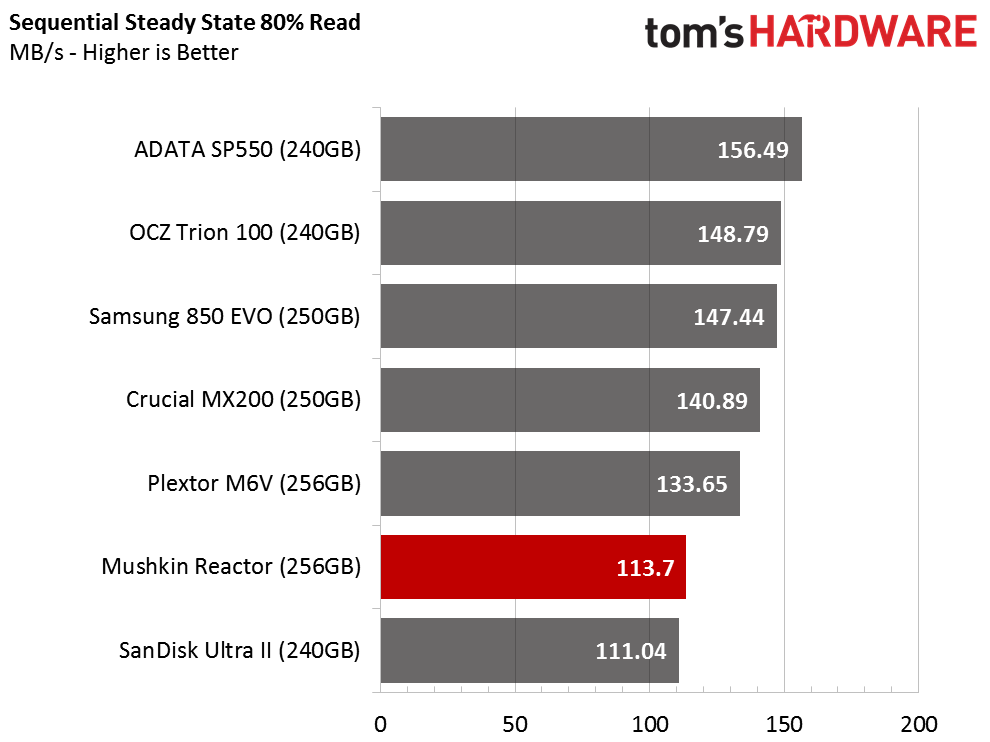
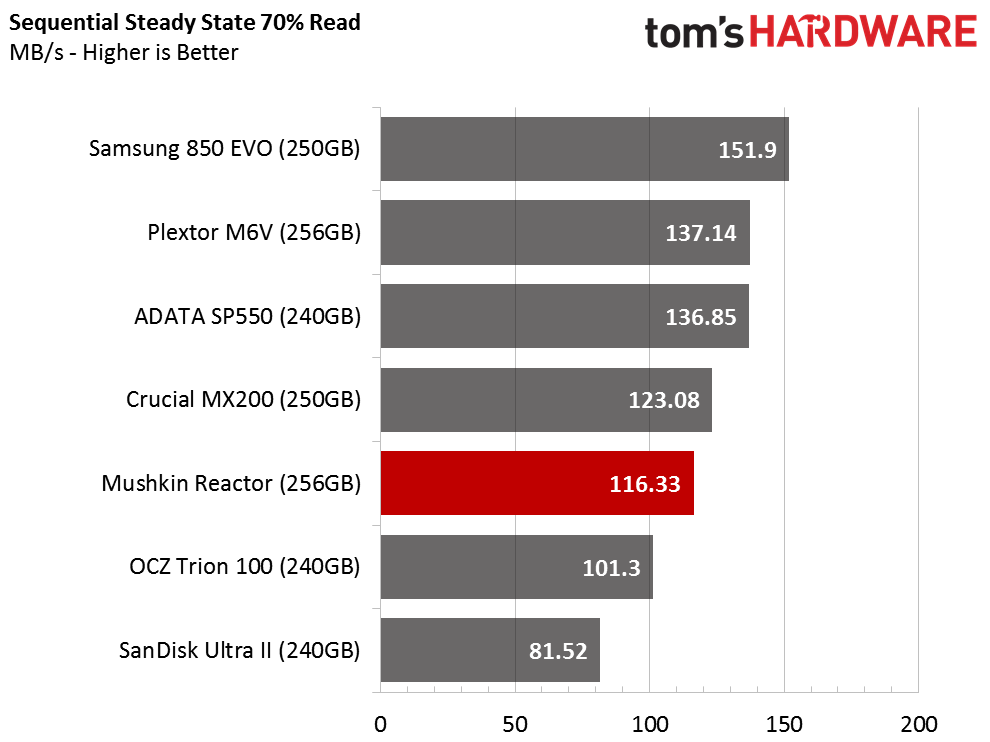
Under normal conditions, users will never achieve full steady state with a client-grade SSD. Client workloads are not stressful enough to drive this level of performance. As the drive fills up, performance drops off because the drive is struggling to find clean cells that will keep write performance high.
We also get to see an exaggerated bathtub curve here of mixed sequential performance and how some drives handle mixed data better than others.
Random Write Steady State
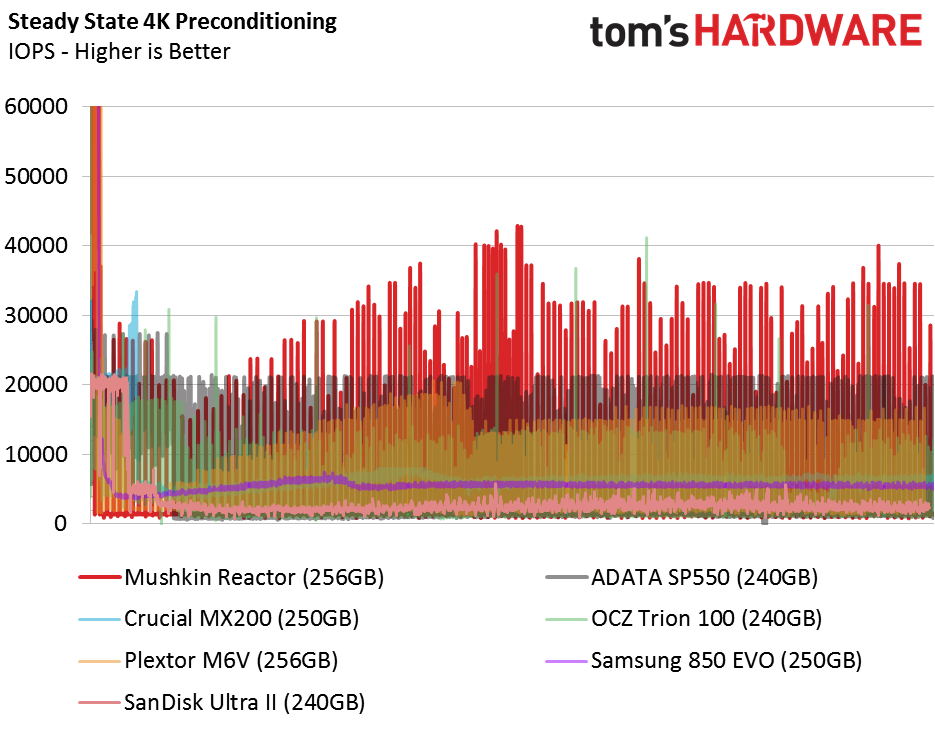
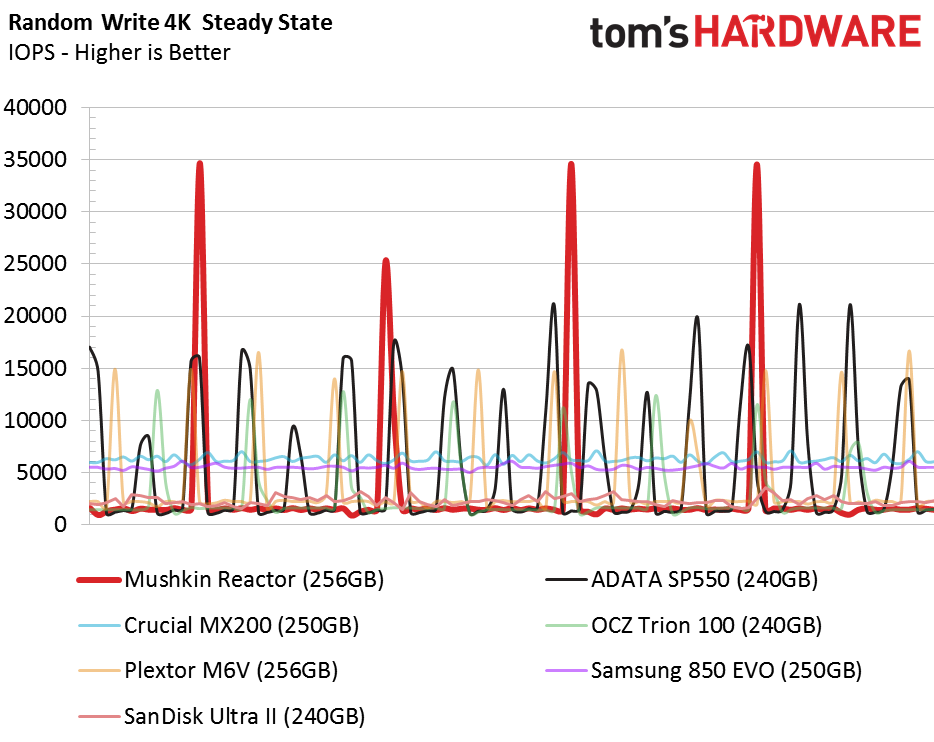
The 4KB random-write test in steady state shows us two important measurements that have very little to do with the actual output. The first thing we look for is performance consistency—a nice steady line of IOPS with a very narrow gap between high and low points. The SM2246EN controller was clearly not designed for enterprise workloads, so the peaks and valleys are far apart. We also look at the low IOPS, because putting a pair of these drives in RAID 0 to equal the performance of another drive is a step in the wrong direction. We don't recommend that you use the Reactor 256GB in RAID 0 for performance benefits.
Get Tom's Hardware's best news and in-depth reviews, straight to your inbox.
Current page: Mixed Workload And Steady State
Prev Page Four-Corner Performance Testing Next Page Real-World Software Performance
Chris Ramseyer was a senior contributing editor for Tom's Hardware. He tested and reviewed consumer storage.
-
mapesdhs It's a pity you weren't able to obtain a Trion 150 for this review, as that would be the more logical OCZ comparison once stock becomes available.Reply
Also, isn't it time we just concluded that the PCMark8 "Real World Software" tests are a complete waste of time? They show no statistically relevant variation at all, even though in many cases it's easy to see significant differences between, say, an 850 EVO and a Trion 100.
-
CRamseyer Hello,Reply
My Trion 150 drives just arrived. You can read a bit about them here:
http://www.tomshardware.com/news/ocz-trion-150-firmware-tweaked,31126.html
The Real World Software Tests show valuable data for those who are not well versed in SSDs. I think people need to understand that we are talking about differences in performance measured in seconds and not minutes. -
knowom http://www.newegg.com/Product/Product.aspx?Item=N82E16820211984Reply
Best value SSD atm if you ask me. If you want more storage grab a second which you can use in raid or to use as another partition with it's own bandwidth. Iither way huge price to performance value.
